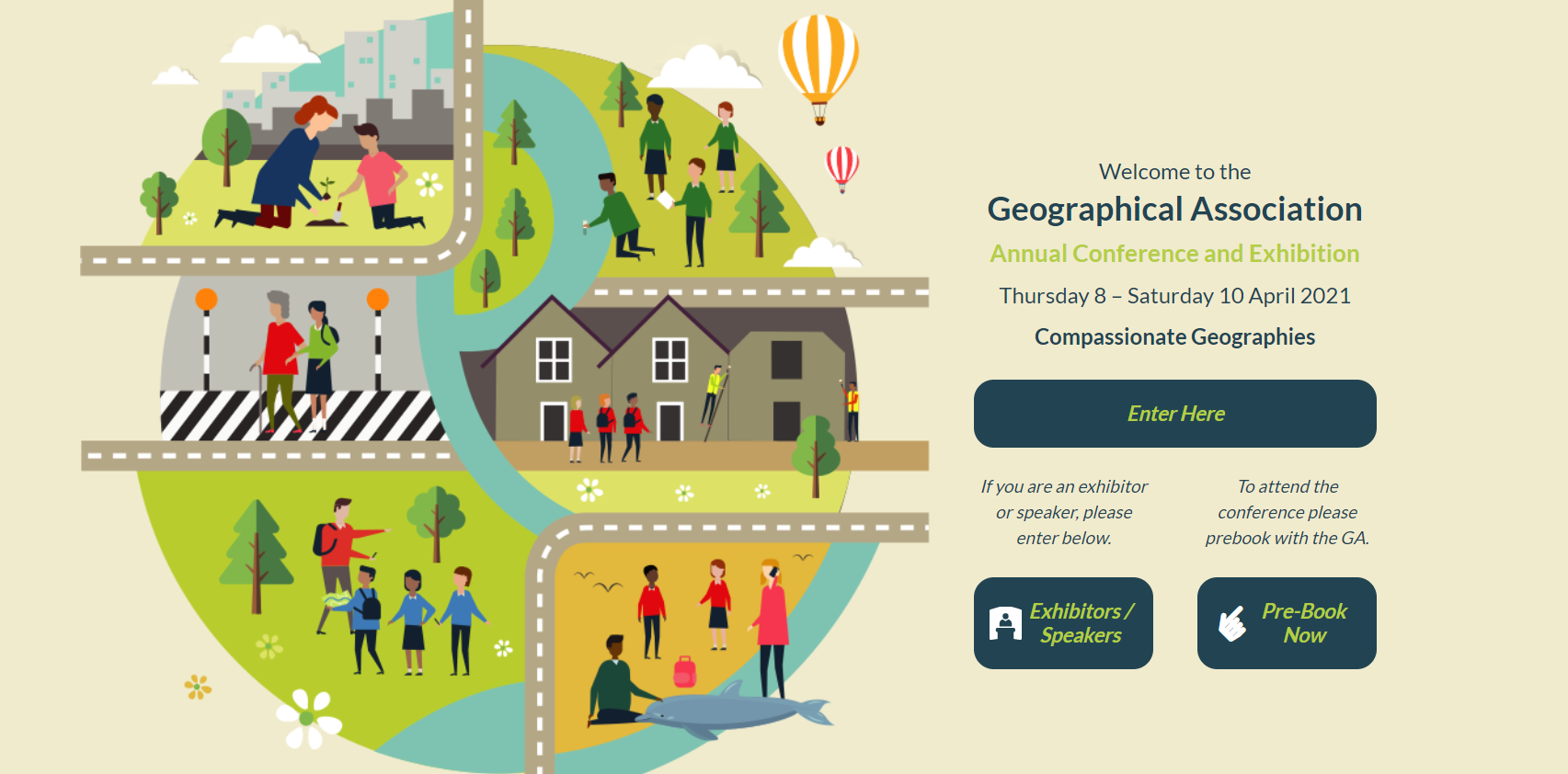As the Easter holidays arrived, so too did the annual Geographical Association Conference. This year it was fully virtual and, naturally, many of us were perhaps questioning how this would work: would it have the same community feel? Would there still be opportunities for networking? Would it have the same ‘buzz’?
As I write this, long after the last session of the conference has ended, I can declare that (in my opinion!) the answer is YES. Yes, through the carefully thought-out programme, the use of networking rooms and the usual stampede of Twitter activity, the buzz certainly remained.
It is impossible to summarise the entire conference in a short blog and so here I have reflected on three sessions that I attended and my thoughts. With all of the sessions recorded and shared with attendees after the conference, please comment below with what you enjoyed and which session you’d recommend I catch up on!
Friday 12-1pm: Simon Oakes
Key concepts in the geography curriculum: mapping key stage progression in the understanding, use and assessment of geography’s big ideas
In this session, sponsored by Eduqas, Simon Oakes gave us a fast-paced overview of his current thinking and understanding of the use of key concepts in geography. Simon introduced threshold concepts as the big ideas or the grammar of our subject; the ways in which a geographer thinks about and views the world. He explained that we could consider our teaching in the following way:
Content = Context + Concepts
I haven’t come across this particular summary before but think it’s a very useful way of thinking about curriculum. After all, whatever content we’re looking at in our geography classroom, our key concepts are what enable us to consider this information through a uniquely geographical lens.
Simon went on to discuss the contested nature of geography’s key concepts and pose many interesting questions: Should geographical concepts be fluid? Should they change with the times? Do the key concepts of the subject depend on the level of academic study? What makes a concept uniquely geographical?
This session gave me lots to consider and lots to reflect on when next doing some long-term curriculum planning. One incredibly useful resource was shared; a bank of knowledge organisers around key concepts at A-Level. These can be downloaded here.
Link: https://resources.wjec.co.uk/Pages/ResourceSingle.aspx?rIid=4076
Saturday 9:30-10am Simran Jouhal
The importance of books in the geography classroom.
As a big fan of reading and using books in the classroom, this session jumped out at me straight away! Recently there seems to have been a move by geography teachers (myself included) to increase the amount of reading in our classrooms and I’d argue this is hugely positive. As a result, I’m always interested to hear how people are using books in their curriculum.
Simran’s session was jam packed with suggestions of books, ideas of activities, and reflections on the value of reading in the geography classroom. I particularly enjoyed listening to her explaining the use of whole class reading and guided reading activities at Key Stage 3 as this is something I want to continue to build into lessons.
I’d encourage anyone wanting to explore the use of books in their curriculum to watch this session.
Saturday 10:30-11am Emma Rawlings-Smith
Let’s Talk: the importance of collaboration, communication and networking in education
In this session Emma discussed her research with regard to initial teacher training and the importance of collaboration, communication and networking in geography education. As a PGCE mentor for the first time this year, I was interested in this session to hear what I could do as a mentor to ensure the best possible training experience for my mentee.
Emma covered a huge amount of information in her session, providing plenty of food for thought. She considered questions such as: what knowledge is needed for teaching in schools? What is teachers’ professional knowledge? Why is belonging to a subject community important for geography teachers? Perhaps most interesting were Emma’s research findings about what influences PGCE students thinking about teaching and learning school geography. Unsurprisingly, school mentors were the top influence and the importance of professional collaboration and mutual dialogue were stressed. For anyone involved in mentoring ITT students, or thinking of doing so in the future, I’d recommend catching up on this session!
Kate Stockings is Head of Geography at The Hampstead School having completed her PGCE at the University of Cambridge 2014-2015. She is an author for OUP and has completed her Masters in Education.

